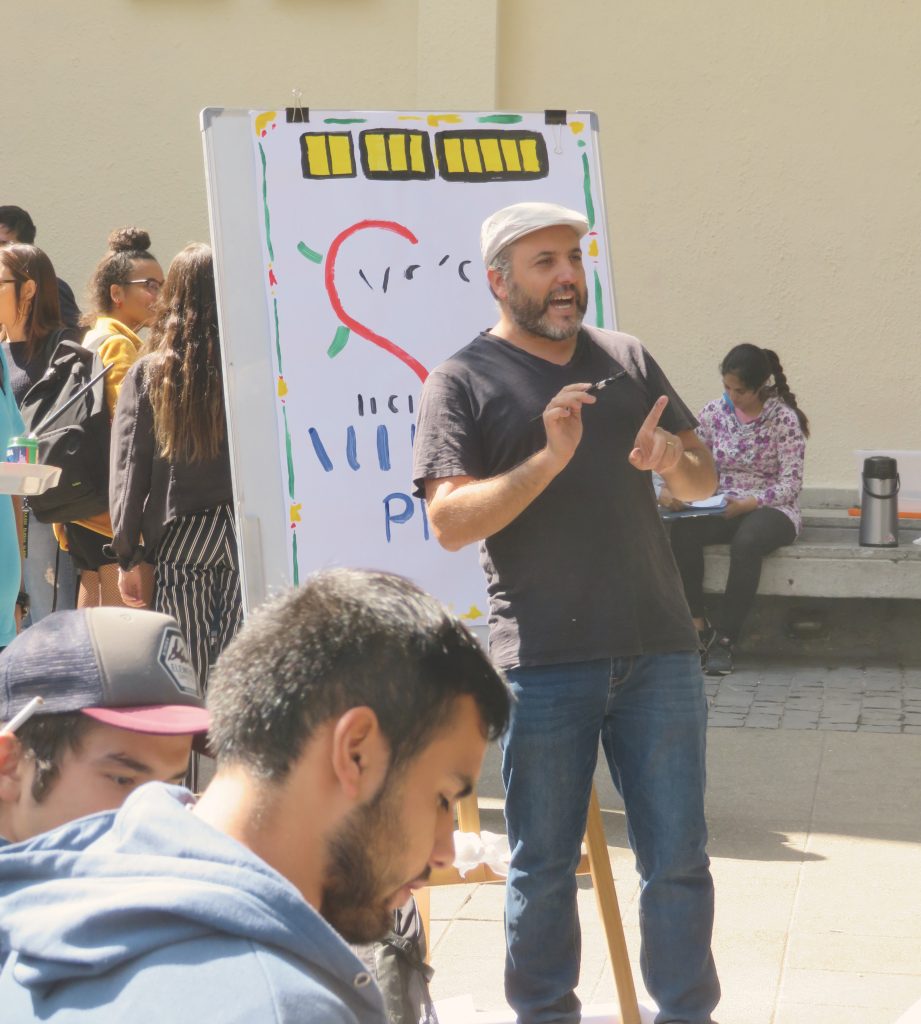A long yarn: Checkpoint Autumn 2021
CMS missionary Frances Cook has served in Chile for more than 30 years. Here she speaks about the advantages of long-term mission, as well as some of the difficulties.
Yesterday I had a long yarn by phone to Jacquie. I’d lived with her when I first arrived in Punta Arenas, Chile. We talked about family, recipes, God, coronavirus and the weather, as you do with old friends. As Jacquie didn’t speak English, she played a vital role in my language learning and enculturation. Now a divorced grandmother, her life has not been easy.
Many things determine how long missionaries serve. For my 32 years in Chile, Jacquie would agree that my stubborn nature played a role. Also, I was convinced that my coming here was God’s doing and so saw only one thing ahead: service in Chile.
Serving long-term has problems and advantages
I can see many advantages to long-term mission, but there are problems as well.
Mission is costly. Not only the missionary, but also family and friends in Australia pay a heavy price. Nonetheless, following Jesus is indeed going to be costly—as he warned. Modern travel and technology mean that, in some ways, the cost of mission is discounted. Yet other costs remain.
Long-term mission must be maintained, and that comes at an ongoing personal and financial price for all who support it. CMS enables those God calls to cross-cultural mission to go with the support of partners who will pray, care and give. But it can be very difficult to maintain committed financial and personal support for the duration of long-term service.
So, what are the advantages?
After over 30 years serving here, just what makes Chilean culture ‘tick’ is still sometimes mysterious to me, but I certainly have a better feel for it now than I did half a lifetime ago. That is immeasurably helpful for both life and ministry.
I have found that serving long-term means more, and potentially deeper, relationships as well as the joy of seeing people continue in the faith for many years. In my current church, there are grandchildren of people who I saw come to faith in Punta Arenas. Likewise, I have taught students at CEP, the Anglican seminary, whom I knew as little children. I taught Cristobal, CEP’s current principal (then a university student) as he worked towards his Certificate in Theology. He kindly says that this was the time when he came to understand the gospel.

Cristobal doing street evangelism during CEP Mission in 2019.
One CEP student had been a young child when we did some doorknocking in a new area of Punta Arenas in the late 1980s. Her parents invited us in and were eventually converted, becoming steady Christians.
Since I both belong to the generation of the older pre-CEP clergy, and have been associated with the seminary from its beginning in 2003, I have been able to get to know most clergy and their wives along the length of the Anglican Church of Chile and some outside. That is both a great joy and a tremendous privilege. Many are doing a wonderful job. Some have left the ministry for different sad reasons. Others struggle on, seeking to do good ministry and make good personal decisions. Some CEP graduates have planted new churches, or helped to see an abused or declining church restored. Perhaps in a few years, God-willing, one or two CEP graduates will be diocesan bishops.
I am weak too
The other side of knowing many people is that they know me, warts and all, and have seen me grow too. So, when ministering to others, I often have no choice but to recall my weaknesses too. My own pastor is a CEP graduate and has seen the need to gently correct me on occasion.
Long-term, like life, forms us. God uses that for his good, gentle and kind purposes for his glory and the church he loves so dearly.
GIVE
As Frances mentions in her article, it is not always easy to maintain long-term financial support. Are you able to commit to giving regularly to help CMS missionaries serve long-term? Go to give.cms.org.au












































































































